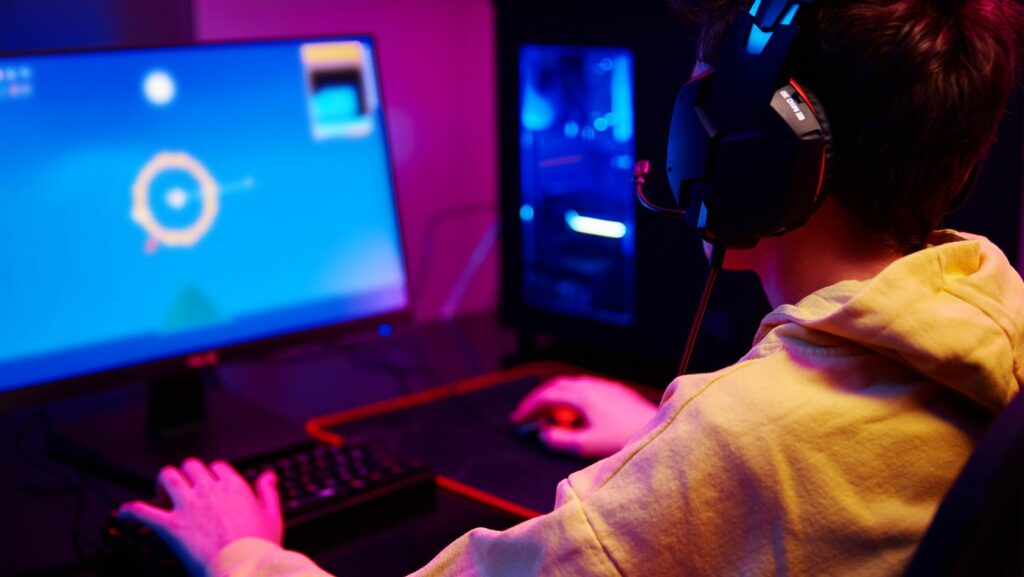In the buzzing world of video gaming, standing out from the crowd is no child’s play. It’s a realm where creativity and strategy collide, where the power of marketing is just as crucial as the thrill of the gameplay. Welcome to the dynamic landscape of video game marketing.
This is where art meets commerce, where developers and marketers join forces to captivate gamers’ hearts and minds. From indie studios to big-name publishers, everyone’s aiming for that top spot on the leaderboard. Stay tuned as we delve into the strategies, trends, and secrets that power this billion-dollar industry.
Video Game Marketing
Diving deep into video game marketing unravels an intricately designed universe. It’s a unique domain where technical prowess meets creative strategy.
Video game marketing has consistently reinvented itself. In the late 1970’s, it started with simplistic posters and magazine ads, leading towards TV commercials in the 1980’s. As internet erupted in the 90’s, games got showcased via large online networks. Examples of such networks include AOL and Yahoo. The advent of social media in the mid-2000’s brought newer, more personalized ways to market video games. However, the game-changer happened in the 2010’s. The rise of streamers and influencers on platforms such as Twitch and YouTube evolved the entire marketing landscape.
Marketing holds a pivotal role in the gaming industry. It’s the key tool that connects the game creators with their target audience, the gamers. With hundreds of games releasing each month, establishing a stand-out presence becomes critical. Here, marketing steps in, making people aware of the game, creating anticipation, and finally, propelling sales

Components of Video Game Marketing
Delving deeper into video game marketing, multiple significant components form an integral part of the structure. Their effectiveness and implications vary, depending on the context.
In-game advertising, a ubiquitous form of video game marketing, strategically incorporates ads within the gaming environment. Games such as Fortnite have used this technique, featuring billboards promoting real-world entities. It provides immersive exposure, given the highly engaged nature of gamers. However, success hinges on the subtlety of integration, as excessive intrusiveness could deter players.
Influencer Marketing
Influencer marketing taps into the sphere of well-known profiles, primarily on YouTube and Twitch. They generate potent clout among gaming circles, making them prime endorsers. Their game reviews or playthroughs can attract droves of followers. Take PewDiePie’s Minecraft series, for instance. His extensive follower base contributed to a resurgence in the game’s popularity, demonstrating the immense implications of influential gamers.

Case Study: Successful Video Game Marketing Campaigns
Surveys of effective marketing trends can’t be complete without a glimpse into a few case studies. The success stories of Fortnite and PUBG illustrate the potential of insightful video game marketing campaigns.
Fortnite’s prevalence in the social media realm signifies a groundbreaking accomplishment in video game advertising. The game accomplished this feat by maintaining a dynamic online presence, unveiling unique features, and establishing collaborations with renowned artists and brands.
Epic Games, Fortnite’s developer, leveraged live events, creating spectacles that thousands joined in real-time virtually. They held a virtual concert for Travis Scott, an American rapper, attracting over 27 million unique participants. This exemplifies how, by integrating digital experiences with traditional promotional tactics, Fortnite captured a broad audience base.
Fortnite’s social media strategy also involves timely updates and interactive content to engage its players. They regularly posted hints of new features, character reveals, or exclusive sneak peeks at upcoming seasons on their social media platforms, generating anticipation among their followers.
Furthermore, utilizing partnerships with brands like Marvel has allowed them to incorporate widely-recognized characters into the game. This strategy has attracted Marvel fans, expanding Fortnite’s player base.
PUBG’s Viral Influencer Campaigns
PUBG’s rise to popularity came as a result of its employment of influencer campaigns, a strategy which leveraged high-profile gaming personalities. The game’s developer, PUBG Corporation, understood the power of influencer marketing and invested heavily in collaborating with influencers.
Prominent influencers like Ninja and Shroud were among those approached by PUBG for promotional activities. Streamings of these influencers playing PUBG on platforms like Twitch and YouTube garnered colossal viewership, resulting in substantial publicity for the game.


